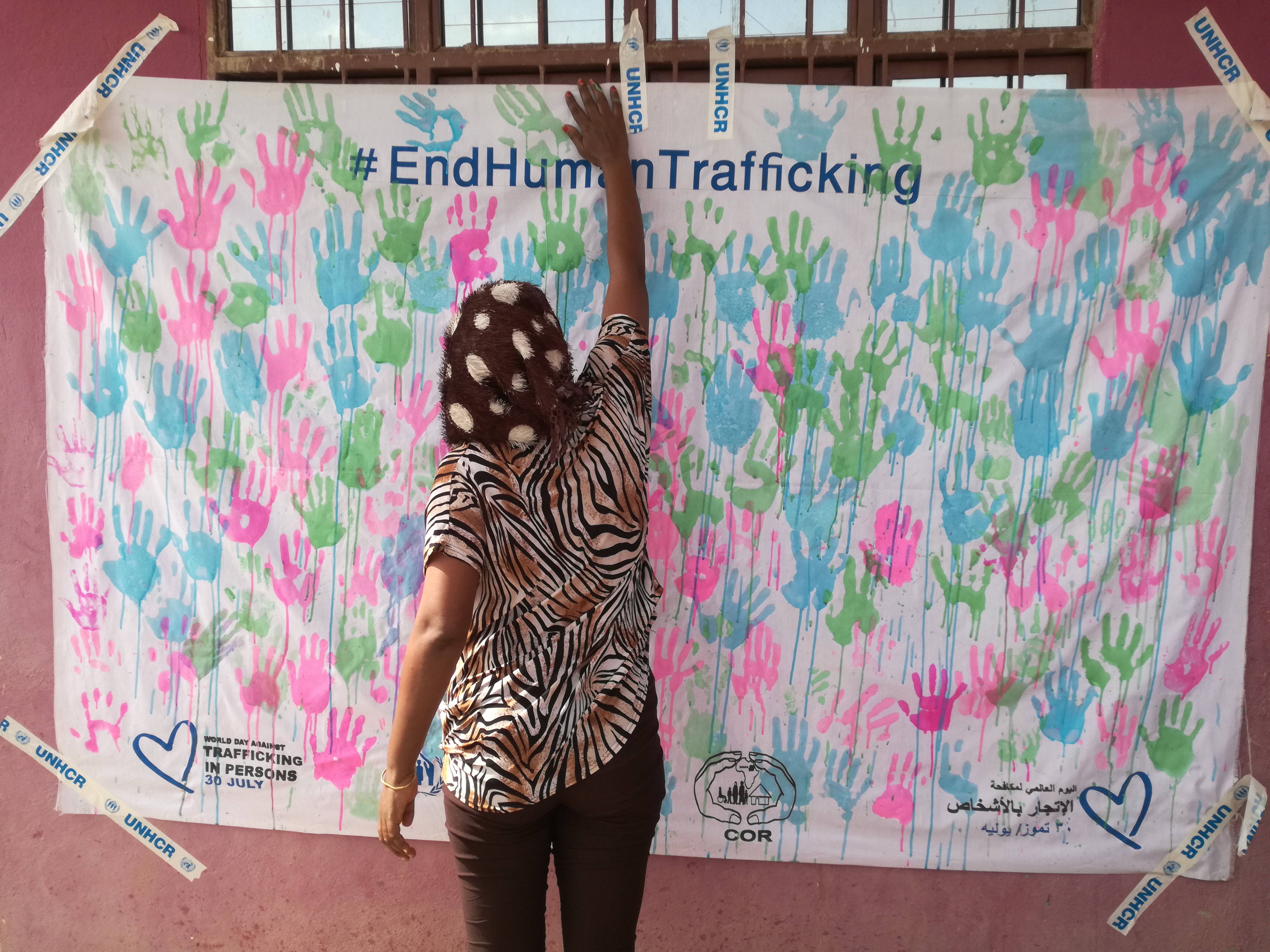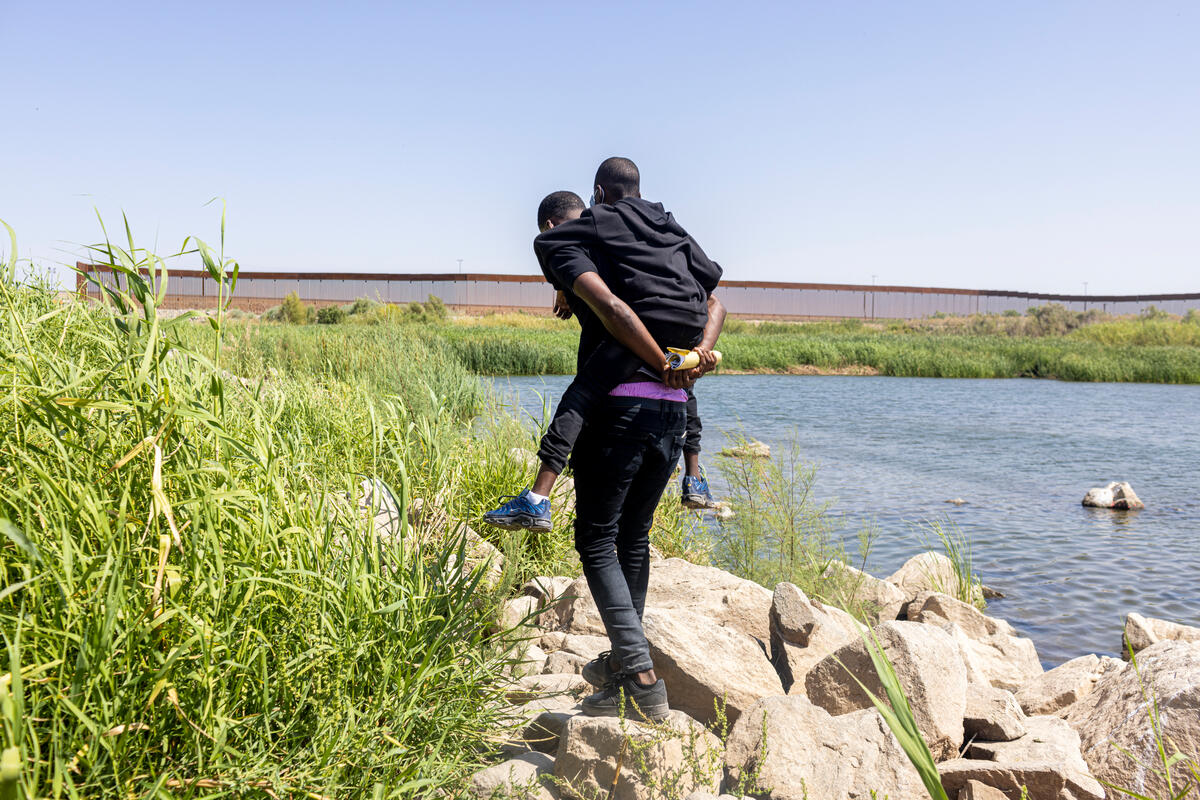UNHCR chief Guterres briefs UN Security Council on protection challenges
UNHCR chief Guterres briefs UN Security Council on protection challenges

UNITED NATIONS, January 8 (UNHCR) - UN High Commissioner for Refugees António Guterres on Thursday briefed the UN Security Council on the challenges facing his agency in caring for tens of millions of uprooted people in an increasingly complex and often dangerous international environment.
Guterres noted that since his last Security Council appearance in 2006, when refugee numbers were the lowest in nearly 25 years, there has been a significant increase in displacement - primarily due to the conflicts in Iraq and Somalia. Today, UNHCR works in nearly 120 countries on behalf of some 32 million refugees, internally displaced people and others of concern. More than 80 percent of its 6,000 staff work in the field, 60 percent of them in difficult and often dangerous non-family duty stations.
The High Commissioner listed a series of conflicts worldwide that have generated millions of refugees and presented enormous humanitarian challenges. One group of high-profile crises - stretching from south and south-west Asia, through the Middle East to Sudan, Chad and the Horn of Africa - accounts for about two-thirds of the world's refugees and includes Afghanistan, Iraq, Sudan's Darfur region and Somalia.
These conflicts were now interrelated and together had major implications for global peace and security. They require a strong humanitarian response, Guterres said, but any lasting solution must be political. "While it is absolutely vital that the victims of armed conflict be provided with essential protection and assistance, we must also acknowledge the limitations of humanitarian action and its inability to resolve deep-rooted conflicts within and between states," he said.
In Afghanistan, intensified conflict and the deliberate targeting of aid workers has restricted humanitarian access to around half of the country, Guterres said. Nevertheless, Afghan refugees continue to go home with UNHCR support - some 278,000 last year alone, mainly from Pakistan. Most of them, however, were returning not because of a meaningful improvement in Afghanistan, but because of growing insecurity and economic hardship in Pakistan.
Pakistan has itself now seen the displacement of some 300,000 of its own citizens in North-West Frontier Province and the Federally Administered Tribal Areas along the Afghan border. This underscored the fact that the Afghan situation cannot be addressed in isolation, which was why UNHCR and the Kabul government recently organized an international conference to consolidate a comprehensive strategy for the sustainable return and reintegration of the country's uprooted people.
In Iraq, UNHCR is also working with the government to create the necessary conditions for the eventual voluntary return and sustainable reintegration of refugees and internally displaced people, Guterres said, adding that there was still a long way to go before this groundwork was done. UNHCR has increased its presence in Iraq to most of the country's 17 governorates. In the meantime, he said, it is imperative that other governments hosting more than 2 million Iraqi refugees preserve their "asylum space" with the support and assistance of the international community.
In addition to these high-profile, interrelated situations, Guterres said there were many other conflicts that largely lack international attention because their impact is local or at best regional, and they are not seen as having implications for global security. These include crises in places such as the Central African Republic, where some 300,000 people have been uprooted, and the Democratic Republic of the Congo (DRC).
"To echo my earlier remarks, there is no humanitarian solution to that conflict," he said of the DRC, where UNHCR and other agencies are struggling to help hundreds of thousands of displaced people amid continuing violence and massive human rights abuses. "The solution must be political and involve the DRC, Rwanda, other regional actors and the international community as a whole."
Guterres noted that the forms of forced displacement were also becoming more complex and interrelated, exacerbated by a mix of climate change, extreme poverty, poor governance and conflict, and now possibly compounded by the impact on the developing world of the current global financial meltdown and economic recession.
The High Commissioner also cited some specific security challenges facing his agency and the international community in responding to humanitarian crises, starting with peace-keeping and protecting civilians in situations where there is no peace to keep.
"As a humanitarian agency, UNHCR has limited capacity to provide physical security for its beneficiaries," he said. "In some situations, ensuring the security of camps and maintaining their civilian and humanitarian character is only possible with the support of peace-keepers."
In eastern Chad, where UNHCR operates 12 camps for nearly a quarter of a million refugees from Darfur, an effective peace-keeping force was crucial in dissuading attacks on refugees, in preventing recruitment of refugee children by armed groups and in reducing the threat of banditry and sexual violence.
"But in situations where there is no peace to keep, mandates for the protection of civilians must be sufficiently clear and strong, and supported by appropriate levels of political and material support," Guterres said. "Many peace-keeping operations start in a situation of relative tranquillity, only to be affected later by a deteriorating security environment."
The safety of the humanitarian workers trying to help refugees was a parallel challenge, he said, noting that they often risk their lives to help vulnerable populations.
"Ensuring staff safety must be a top priority of every humanitarian organization and the UN as a whole. That is non-negotiable," Guterres said. "And yet, with the evolving nature of armed conflict, the deliberate targeting of humanitarian workers has increased, establishing a tension between the imperatives of staff safety and effective humanitarian action. This is an issue which continues to generate acute dilemmas."








